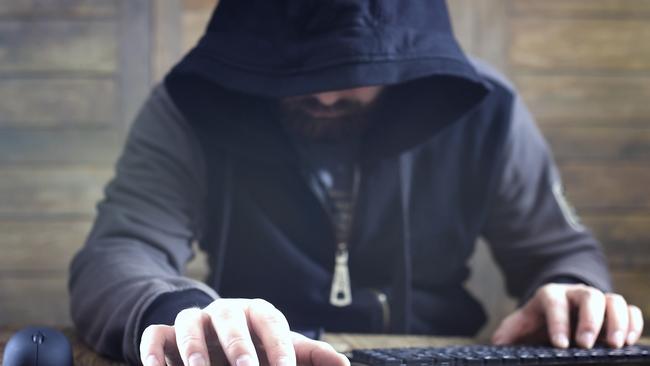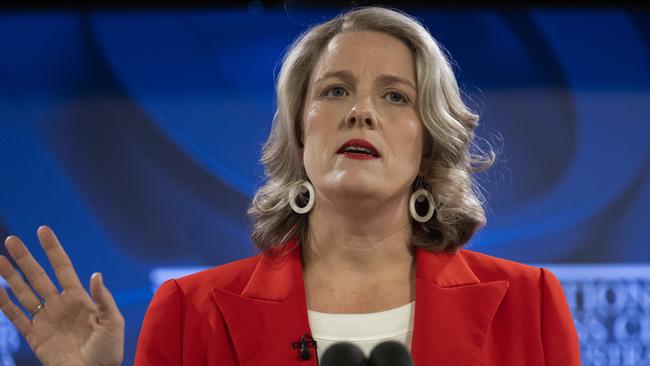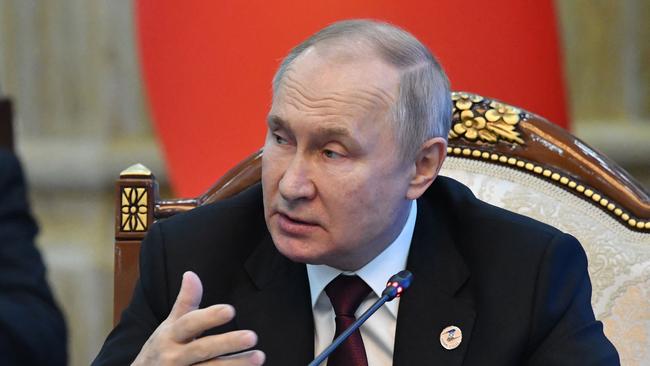
Home Affairs Minister Clare O’Neil addressed these realities in a speech to the National Press Club last week. Home Affairs is a crucial element of the Albanese government’s national security approach. O’Neil is trying to alert Australians as to how their security is newly challenged by international forces that can act within Australian society, rather than just pressuring it from outside.
O’Neil, like Anthony Albanese, Defence Minister Richard Marles and Foreign Minister Penny Wong, begins with the understanding that this is the most dangerous and threatening security environment since World War II. Her speech dealt with technology, cyber, natural disasters and the resilience of democracy. Each is vital, linked and newly subject to international forces that can now behave as though they are legitimate actors deep inside Australian life.

Consider one of the least intuitive linkages – how is natural disaster connected to foreign manipulation? O’Neil sketches a plausible scenario. Say there is a Black Saturday-size bushfire in the southeast and a major flood in the north. A malicious actor launches a big cyber attack on a major hospital or the hospital system. Then imagine another black hat presents us with a regional security crisis at that moment.
Do we have the bandwidth, the resources, the resilience, to cope with all of that at once? While foreign actors cannot create natural disasters, they can see what effect these have on us and what opportunities they present.
Technology is opening the door for foreign actors to come into our society and do as they will. O’Neil told the press club: “Today, new tools of statecraft are bringing what might otherwise be global security issues into the everyday lives of our citizens.”
O’Neil offers examples: people’s most intimate medical details can be public knowledge because of cyber attack; in business and research every hard-won innovation can be lost to cyber theft. And as O’Neil says: “Foreign actors are trying to influence decisions in our parliaments and universities, and subjecting Australians to online information and disinformation campaigns which spread like viruses around our communities.”
O’Neil doesn’t ignore terrorism and organised crime, but in the half decade since the Home Affairs ministry’s creation the threat spectrum has changed radically. On cyber, O’Neil’s biggest single initiative is to create a 100-person team, formed by the Australian Federal Police and the Australian Signals Directorate, to hit back at international hackers and cyber aggressors.
The government identified the criminal gang in Russia behind the recent Medibank attacks. The purpose of O’Neil’s new team is, when such identification is made, to carry out aggressive cyber action against the hackers themselves. She told me: “We’ve got to change the dynamics of this crime so that it’s not risk-free any more. We want to use offensive cyber capabilities against the criminals. We want to hack the hackers.”
I have no idea whether that’s completely practical in a substantial number of cases. But it’s the right attitude, the sort of action an Australian government should lean into with as much realistic enthusiasm as is sensible. If we can hit back, so much the better.
Part of this response will draw on new capabilities in the ASD being developed under the REDSPICE program that the Morrison government announced.
Several elements of O’Neil’s speech are important. One is that she’s absolutely clear about the contradiction, and the competition, between authoritarian societies and democracies. As she said to the press club: “Even beyond our region, the global world order is shifting and creaking. Big state politics is back, and there is clear, co-ordinated competition between authoritarian countries and democracies.”
This might seem obvious but it is a stunningly important insight and by no means universal in most Western governments. It contradicts fundamentally the default operating system of the foreign affairs mindset. By this I don’t mean our own Foreign Affairs Department but, rather, the generic internationalist, technocratic and bloodless mindset of many of those folks whose lives are international diplomacy. They tend to see a “system” of institutions and rules that states live up to or not in varying degrees. The object of diplomacy is to maximise the institutions’ governance and smooth the differences.

Whereas the stark realities of power politics provide the real dynamic of global politics. They are radically different from “the international system” approach. Thus O’Neil said: “Competitor countries are seeking to undermine our democracy and we need to fight back. Their intention is to justify authoritarianism by making it look like democracy is inherently dysfunctional. And to weaken countries like ours and to constrain them from responding to global situations our adversaries may create. We know that foreign interference, misinformation and disinformation are on the rise. We need to reduce our susceptibility.”
This is brilliant and stirring stuff. One way O’Neil suggests for countering foreign interference is by alerting individuals and groups likely to be its targets so they are on their guard. That’s no silver bullet but it’s surely useful. China is a key actor in cyber security and foreign interference, as O’Neil makes clear enough, but it’s not the only such actor.
O’Neil also grapples with the disheartening alienation especially of young people from democracy. She’s proud of Australia’s democratic achievements and thinks we ought to make a more systematic effort to tell our own people, young and old, about the good story of Australian political history. Thus she comments: “We are the sixth oldest democracy in the world. We are the great democratic innovator: the inventor of the secret ballot, one of the first in the world to give women the right to vote. We have very high participation in our democracy, and a strong and independent electoral commission, where politicians do their bit and respect the result. An independent media that, despite its many challenges, does a bloody good job. We have a hell of a lot to be proud of.”
O’Neil is a zeitgeist radical here. Could such unapologetic, unashamed, unambiguous words of civic and moral sense, and deep historic authenticity, dare one say it, national pride, ever find their way into a contemporary Australian curriculum document?
Foreign activism within our own social and political system is growing, even though we’ve taken strong steps to counter it. O’Neil’s bluntness in describing these problems sits within a long social democratic tradition of attending seriously to security. Think of Bob Hawke expelling Soviet diplomat Valery Ivanov in 1983. Recognising the new challenges is the first step to dealing with them.








The forces shaping, distorting, shaking up and revolutionising international security are now invading our domestic space. The old distinctions between domestic security, international security, commercial security and even natural disaster planning are all collapsing. Everything now depends on everything else.